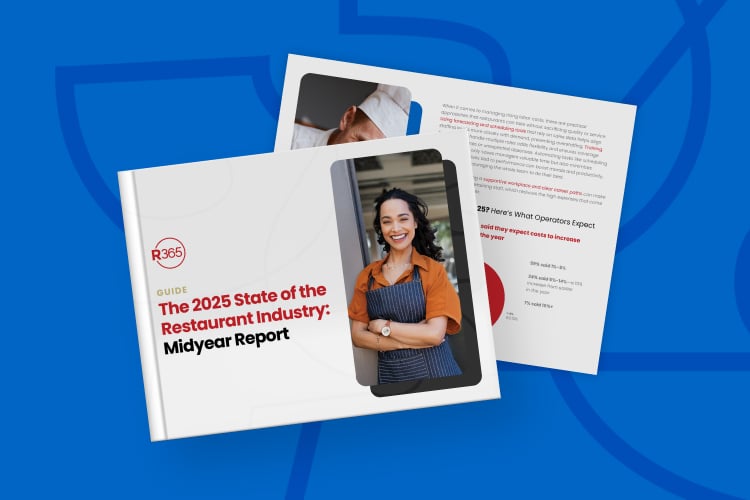This article was written by WorldatWork and features Morgan Harris, chief customer advocate and co-founder of Restaurant365.
“A diverse workforce brings diverse ideas and innovative solutions to problems,” Harris said. “In the restaurant industry, you interact with people from all walks of life. You need various points of view to make restaurants work.”
Several U.S. states — from Alaska to Pennsylvania — have recently dropped college-degree or certification requirements in favor of alternative certifications or experience for state employment, with Virginia becoming the latest state to do so.
Almost 90% of Virginia’s state job listings will be affected by the change, according to the announcement.
During the past decade the trend of dropping degree requirements has slowly been working its way into the private sector, as a growing number of companies, including IBM, Accenture, Dell, Google, Delta Airlines and Bank of America, have been relaxing or redefining their hiring qualifications for certain jobs.
Research on the topic also seems to confirm the trend: A 2022 survey of 1,500 Gen Z youth and 600 employers by American Student Assistance and Jobs for the Future revealed 81% of responding employers believe they should focus on skills rather than degrees when hiring.
Many of the most innovative companies have realized that degrees may not always be the best indicator of the work a current or potential employee can do, said Rya Conrad-Bradshaw, vice president of corporate markets at Cengage Work, part of Cengage Group.
“By identifying and defining the specific skills needed for a job — rather than focusing on a degree requirement — employers can be sure they are pulling in employees who will be able to perform the work needed from day one,” she said.
Reaping the Benefits
Recent research published by Bain & Co. and Grads of Life shows that when hiring for skills over degrees, employers see equal if not greater gains in productivity, fit and retention.
“Removing the degree requirement also has benefits for expanding and diversifying candidate pools, especially at a time when there are more job openings than available workers and competition for talent is strong,” Conrad-Bradshaw said.
According to the research, such requirements automatically screen out the more than 60% of American workers over the age of 25 who do not hold a four-year degree, as well as 76% of African Americans, 81% of Americans in rural communities, and 83% of Latino workers.
This is one of the biggest benefits of removing unnecessary requirements, said Morgan Harris, chief customer advocate and co-founder of Restaurant365.
“A diverse workforce brings diverse ideas and innovative solutions to problems,” Harris said. “In the restaurant industry, you interact with people from all walks of life. You need various points of view to make restaurants work.”
Exceptions to Relaxing the Requirement
While a Cengage report from July 2022 found that employers relied on degree requirements partly because of an unfamiliarity with credentialing programs, skills-based hiring is nonetheless growing more popular in the workforce.
But it doesn’t mean the value of a college degree will dissipate, Conrad-Bradshaw said.
“College degrees can often offer higher-order complex thinking that may be necessary for some positions,” she said. “And although skills are valuable, some companies still feel safer relying on higher education degrees, since three in five employers rejected candidates with qualifying skills and experience, but no college degree.”
After all, there will always be value in a college degree for certain roles, especially where specialized skills and historical context of an industry are helpful, Harris added.
“Sometimes specific experience and certifications are necessary requirements, like for CPAs,” he said.
The Compensation Component
When organizations decide to adopt a no-degree approach for employment, compensation packages will of course need to be re-examined and recalibrated, Harris said.
“ must be personalized to a company’s situation, and sometimes it does not make sense to pay someone more for having a college degree. Even in more senior roles, experience and understanding are oftentimes more effective than a degree.”
Conrad-Bradshaw agreed: “After all, an applicant with a four-year degree could bring the same skills and knowledge to the table as an applicant who pursued an apprenticeship or skilling course.”
Every individual’s expertise and experience must be carefully evaluated when compensation decisions are made, she said, “especially if employers are looking to help bridge the earnings gap between those with and without a traditional higher education.”
Overall, companies that have adopted skills-based hiring see an ROI from a variety of sources, including reduction in recruiting costs and retention of employees, Conrad-Bradshaw said.
But it’s definitely not a one-size-fits all situation, cautioned Boncho Bonchev, senior principal, HR transformation and talent acquisition leader at Mercer, “because there’s no way to correlate how much value you bring to an organization and your education level.”
Upskilling and Development
Making a company’s hiring process “skills-first” requires efforts that span the whole talent acquisition process, from pre-hire to onboarding, according to the Bain report.
To that end, job postings will need to be updated, hiring panels made more diverse and onboarding more focused on key skills, the report noted.
So what role should internal talent development play in the transition to a no-degree approach to hiring?
Bonchev called it a “critical” component of the overall equation.
“Organizations need to have that internal development environment because if you eliminate requirements on education and only focus on assessing skills when you come in,” he said, “then should expect that those skills will not only be recognized and rewarded, but also developed.”



